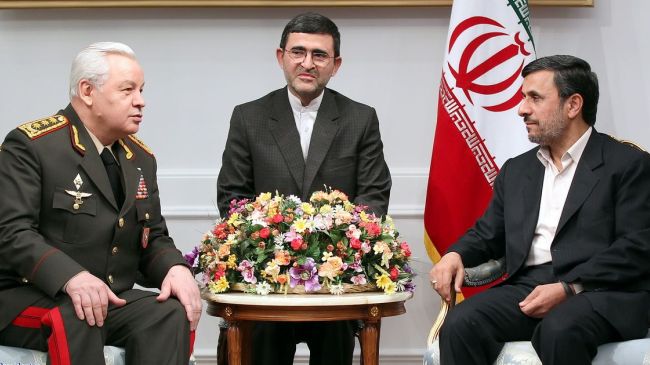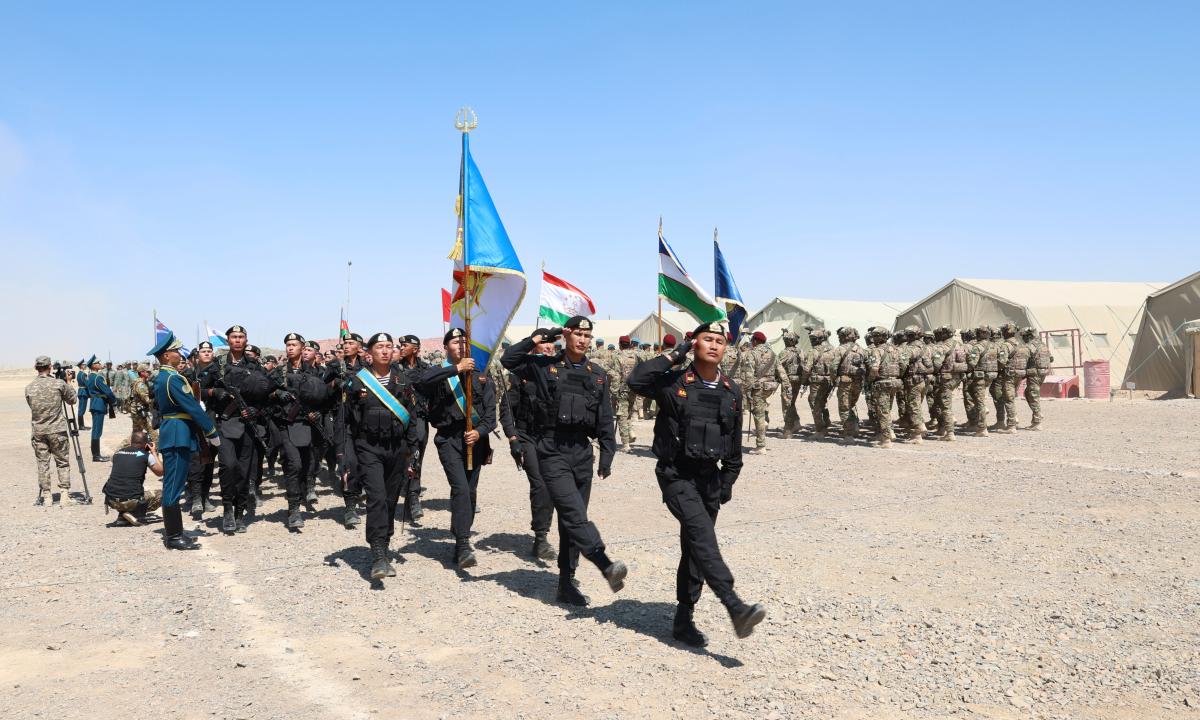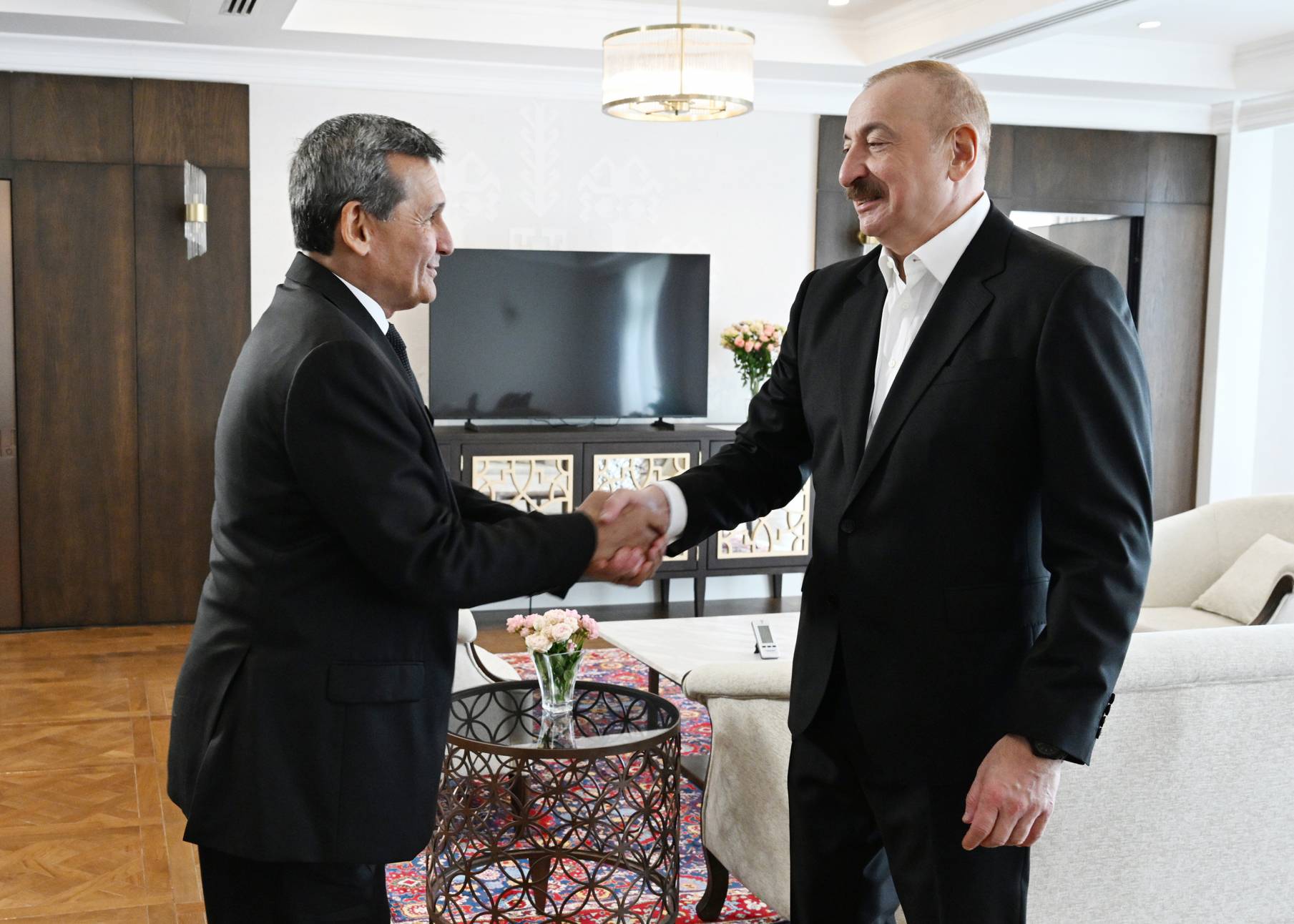
Critical Time for Azerbaijan-Iranian Relations
Critical Time for Azerbaijan-Iranian Relations
For the last two months, Azerbaijani-Iranian relations were put under serious stress. Relations between the two countries lacked cordiality for many years; yet, both countries refrained from harsh criticisms and hostile actions against each other. However, several recent events exacerbated the uneasy relations between the two countries. Regional media outlets reported in February that Azerbaijan had purchased $1.6 billion worth of Israeli weapons including five Heron unmanned aerial vehicles (UAV) and five Searcher UAV drones (Jerusalem Post Online, February 27; News.az, March 29). Azerbaijani officials tried not to reveal the details of the deal, but later on confirmed it as fact. A few weeks later, Azerbaijani Defense Minister Safar Abiyev visited Iran where he met with his counterpart, Defense Minister Ahmad Vahidi, and other Iranian officials. According to official statements from the meeting, the sides discussed the development of military cooperation between the two countries (Today.Az, March 12). However, the purpose of the Azeri Defense Minister’s trip to Tehran was actually to assure his hosts that the Israeli arms purchase is not directed against Iran but rather against Armenia with which Baku has long-standing conflict. News of the arms deal coincided with a special operation conducted by the Azerbaijani Ministry of National Security that resulted in the arrest of 22 individuals who were accused of conducting espionage against Azerbaijan. On March 13, the National Security Ministry reported that these individuals were given special instructions from the Iranian Islamic Revolutionary Guard Corps (IRGC) to collect information on certain embassies in Baku, including Israel’s, as well as foreign companies in Azerbaijan (Today.az, March 14).
Within one month of revealing the facts of the Azeri-Israeli arms deal, US-based magazine, Foreign Policy (FP), reported that Israel had obtained access to airbases in Azerbaijan from which it could conduct bombing operations against Iran. FP’s reporting was allegedly based on inside information from US diplomats and military intelligence officers. According to a source quoted in the article: “The Israelis have bought an airfield, and the airfield is called Azerbaijan” (Foreign Policy, March 28). Azerbaijan’s political and military establishment immediately dismissed the claims. First, the spokesman for the Defense Ministry, Eldar Sabiroglu, stated that no airfield or military base of the Azerbaijani Armed Forces has been given to any other country for use. Sabiroglu said that the main purpose of the FP article was to strain the friendly and fraternal relations between Iran and Azerbaijan, but it would produce no result (News.az, April 3). It is worth mentioning that the Azerbaijani Constitution and Military Doctrine prevents foreign bases or forces on its territory (Military Doctrine of the Azerbaijan Republic, Article 29, June 2010).
All discussions and rumors were put to an end on April 16 during the Azeri President’s meeting with his Cabinet members. President Ilham Aliyev stressed clearly that Azerbaijan will never participate in the military plans of other states against its neighbors. Azerbaijan in this case will not become an arena of struggle and will not allow the use of its territory against its neighbors (TURAN, April 17).
Looking with fresh and sober eyes at the information presented in Foreign Policy magazine, it is understood that the author of the material likely did not have an entirely clear picture of the situation. First of all, it would be suicidal for Azerbaijan to grant Israel access to its territory. If Israel were to attack Iranian nuclear facilities from Azerbaijani territory, Baku would face the brunt of an Iranian retaliatory strike. Azerbaijan’s military capacity would not be enough to protect the country’s critical infrastructure. Second, around 20 million ethnic Azeris live in Iran, but their collective allegiance lies more strongly with their host country; they are not in fact waiting to be “liberated” by Azerbaijan. Thus, Iranian ethnic Azeris would perceive any apparent actions by Baku that enabled Western or Israeli bombing of Iran as a betrayal by their ethnic kin across the border. Last, but not least Azerbaijan is trying to maintain diplomatic neutrality and not get into any activities that could be considered hostile to Iran. For example, in December of 2011, Azerbaijan did not allow NATO’s Airborne Warning and Control System (AWACS) aircraft to fly over the country’s air space (APA, December 27, 2011). Azerbaijan usually allows passage to some military cargo planes en-route from Germany to Afghanistan, but denied the AWACS flight since the plane’s military intelligence capabilities could give grounds to Iranian claims that Baku is supporting intelligence gathering against Iran.
Taking into consideration all the above-mentioned facts, it becomes clear that Azerbaijan was not thinking of providing its territory for Israel. The question then arises: Who would benefit from leaking such information? Baku-based analysts, Arastun Orujlu and Elkhan Shahinoglu, believe that Israel itself is trying to exaggerate the scale of its military cooperation with Azerbaijan in order to increase the tensions between Baku and Tehran. (Eurasianet, April 3). Israeli sources, however, blame the US administration for leaking this misinformation in order to thwart an Israeli strike against Iran. The US administration, meanwhile, rejected the Israeli side’s accusations outright (Yediot Ahranot, March 29, 31). Surprisingly, Iran has been silent after it was revealed that Israeli basing rights in Azerbaijan were fiction. Nevertheless, the scandal proves that Azerbaijan could continue to be at the center of the hostility between the West, Israel and Iran. For Baku it is very important to maintain a balanced diplomatic posture and not provoke either side into actions that could harm the security of the country in the long run.


